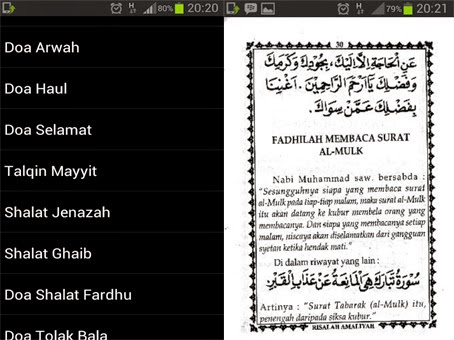
A Case in Ma’arif High School Purbalingga, Indonesia
Pembaca Ahli: K. Fauzi Hamzah Syams, K. Thohari Muslim Penerbit: Anfa' Press bekerjasama dengan Lirboyo Press Lahirnya karya para santri dalam kajian “Menyingkap sejuta permasalahan dalam fath al-qorib” ini, tidak lain juga dimaksudkan untuk memberikan tambahan kekayaan keilmuan dan keluasan wawasan dalam memahami hokum-hukum Islam. Apapun, maka hal itu merupakan amaliyah yang penting bagi pendidikan anak.5 Keteladanan adalah pembiasaan dalam bentuk perilaku sehari-hari seperti: berpakaian rapi, berbahasa yang baik, rajin membaca, memuji kebaikan atau keberhasilan orang lain, datang tepat waktu.6 Keteladanan.
DOI:
https://doi.org/10.2020/ijssr.v1i1.6Keywords:
Ahlussunah;, Islamic Education;, Tasamuh;, Tolerance;, StudentsAbstract
The value of tasamuh as one of the values in Ahlussunah wal Jama’ah is very essential in implementation of Muslims. Tasamuh is to be tolerant of differences of views, especially in matters that are furuiyyah, so that they can coexist peacefully with other parties even though the aqeedah, way of thinking and culture are different. Tasamuh or mutual respect towards fellow Muslims is highly recommended in Islam to strengths in maintaining unity among Muslims, besides being a social demand it is also a form of brotherhood bound by the same aqeedah rope. Even in the hadith is explained that a person is not perfect in his faith if he does not have compassion and tolerance towards his Muslims brother. The aim of this research is to determine the exercise of the implementation of Tasamuh ala Ahlussunah wal Jama’ah in the learning of Islamic education in Ma’arif High School karanganyar Purbalingga and to know the inhibiting factors and supporting factors in the implementation of Tasamuh ala Ahlussunah in learning of Islamic education in Ma’arif High School Karanganyar, Purbalingga. The data collecting method used in this study are interview and documentation. Then, the data analysis used data reduction, presentation of data, and verification. The results of the research on the implementation of tasamuh ala Ahlussunah in learning Islamic education in Ma’arif High School Karanganyar include tasamuh attitudes towards fellow students, Tasamuh towards fellow Muslims and tasamuh towards non-Muslims. Supporting and inhibiting factors of the implementation of tasamuh ala Ahlussunah in learning Islamic education in Ma’arif High School Karanganyar is devided into two, namely internal factors and external factors.
Downloads
References
Abdullah, Maskuri. 2001. Pluralisme Agama dan Kerukunan dalam Keagamaan. Jakarta: Penerbit Buku Kompas.
Aceh, Abubakar. 1984. Toleransi Nabi Muhammad dan Para Sahabat. Solo: CV. Ramadhani.
Aeni, Sofia Nur. 2018. Pengembangan Budaya Toleransi Beragama Berbasis Multicultural dalam Pembelajaran Pendidikan Agama Islam di SD Nasional 3 Bahasa Putera Harapan Purwokerto. Thesis of IAIN Purwokerto.
Al Munawwar, Said Agil Husein. 2003. Fikih Hubungan Antar Agama. Jakarta: Ciputat Press.
Aminah, Nina. 2014. Studi Agama Islam. Bandung: PT Remaja Rosdakarya.
Arif, Armai. 2002. Pengantar Ilmu dan Metodologi Pendidikan Islam. Jakarta: Ciputat Press.
Asy’ari, Muhammad Hasyim. 2015. Risalah Aswaja dari Pemikiran, Doktrin, Hingga Model Ideal Gerakan Keagamaan. Yogyakarta: Ar-Ruzz Media.
Badrun, Alaena. 2000. NU Kristisisme dan Pergeseran Makna Aswaja. Yogyakarta: PT Tiara Wacana.
Baklashova, dkk. 2015. “The Effects of Education on Tolerance: Research of Student’s Social and Ethnic Attitudes”, https://www.mcser.org, accessed on November 04, 2019.
Darajat, Zakiyah. 2017. Ilmu Pendidikan Islam. Jakarta: Bumi aksara.
Desmita. 2017. Psikologi Perkembangan Peserta Didik.Bandung: PT Remaja Rosdakarya.
Document of Ma’arif High School Karanganyar Purbalingga accessed on 13th of April 2020
Fachrian, Muhammad Rifqi. 2018. “Toleransi Antar Umat Beragama dalam Al-Qur’an (telaah Konsep Pendidikan Islam)”. Depok: PT RajaGrafindo Persada.
Faisol, Muhammad. 2010. Hujjah NU (Akidah – Amaliyah – Tradisi). Surabaya: Kalista.
Ghazali, Adeng Muchtar. 2014. “The Concept Of Tolerance In Islamic Education”, jurnal pendidikan islam, Vol. 1, No. 1, June 2014 M/1435 H.
Hamzah, Muchotob, dkk. 2018. Pengantar Studi Aswaja An-nahdliyah. Wonosobo: UNSIQ Press.
Helmawati. 2018. “Implementasi Nilai-nilai ASWAJA dalam Memperkokoh Karakter Bangsa”, SIPATAHOENAN: South-East Asian Journal for Youth, Sports & Health Education, Volume 4(1), April. 2018, page 61. www.journals.mindamas.com/index.php/sipatahoenan
Hujair AH, Sanaky. 2003. Paradigma Pendidikan Islam Membangun Masyarakat Madani Indonesia. Yogyakarta: Safira Insania Press.
Humaidy, Abdussami and Masnun Tahir. 2003. Islam dan Hubungan Antar Agama (Wawasan untuk Para Da’I). Yogyakarta: LKiS.
Maunah, Binti. 2009. Ilmu Pendidikan. Yogyakarta: Teras.
Nursalim. 2018. Ilmu Pendidikan Suatu Pendekatan Teoritis dan Praktis. Depok: PT Rajagrafindo Persada.
S. Anwar. 2015. “Tolerance Education Through Islamic Religious Education in Indonesia” UPI International Conference on Sociology Education (UPI ICSE). Hard disk repair software free full version with crack. Published by Atlantis Press.
Siraj, Said Aqil dalam Muhammad Idrus Ramli. 2011. Pengantar Sejarah Ahlussunah wal Jama’ah. Jakarta: Khalista.
Siraj, Said Aqil. 1997. Ahlus Sunnah wal jama’ah dalam Lintas Sejarah. Yogyakarta: LKPSM.
Sumiarti. 2016. Ilmu Pendidikan. Purwokerto: STAIN Press.
Suryana, Yaya and Rusdiana. 2015. Pendidikan Multikultural. Bandung: CV. Pustaka Setia.
How to Cite
Download Risalah Amaliyah Qusairi Hamzah Pdf Download
Issue
Download Risalah Amaliyah Qusairi Hamzah Pdf Bahasa
Section
Copyright (c) 2020 International Journal of Social Science and Religion
This work is licensed under a Creative Commons Attribution-ShareAlike 4.0 International License.
Authors who publish with this journal agree to the following terms:

- Authors retain copyright and grant the journal right of first publication with the work simultaneously licensed under a Creative Commons Attribution License that allows others to share the work with an acknowledgement of the work's authorship and initial publication in this journal.
- Authors are able to enter into separate, additional contractual arrangements for the non-exclusive distribution of the journal's published version of the work (e.g., post it to an institutional repository or publish it in a book), with an acknowledgement of its initial publication in this journal.
- Authors are permitted and encouraged to post their work online (e.g., in institutional repositories or on their website) prior to and during the submission process, as it can lead to productive exchanges, as well as earlier and greater citation of published work (See The Effect of Open Access).